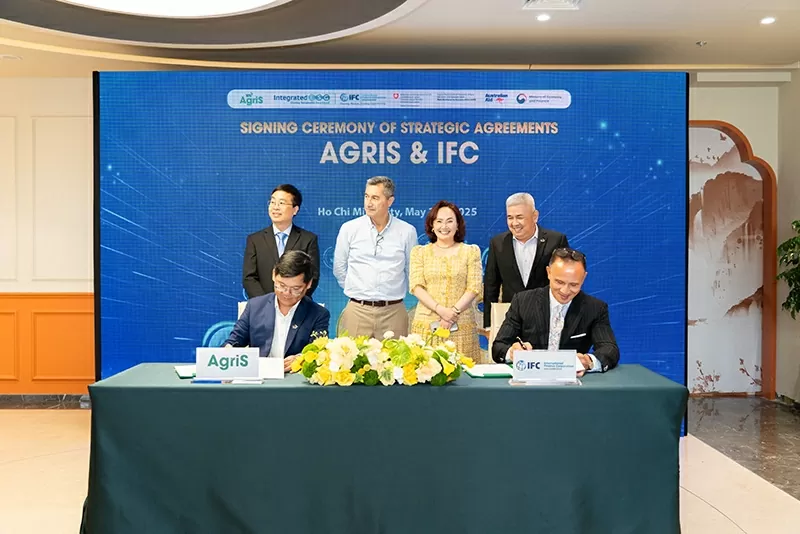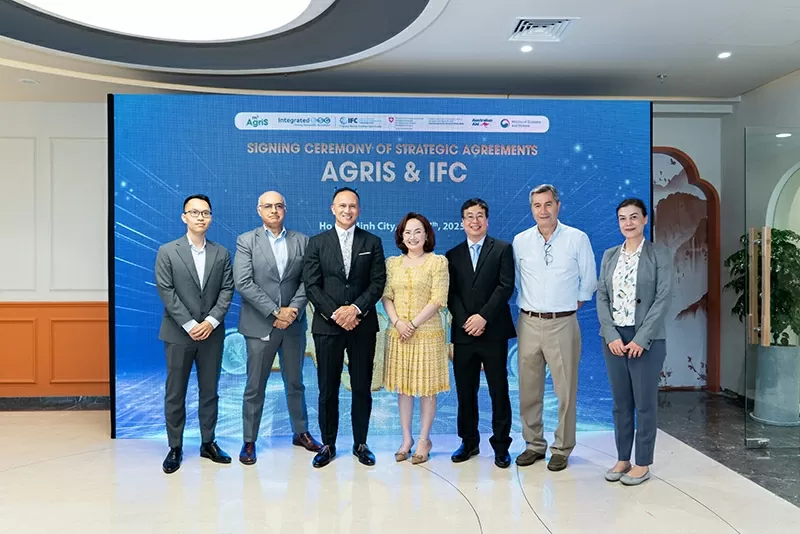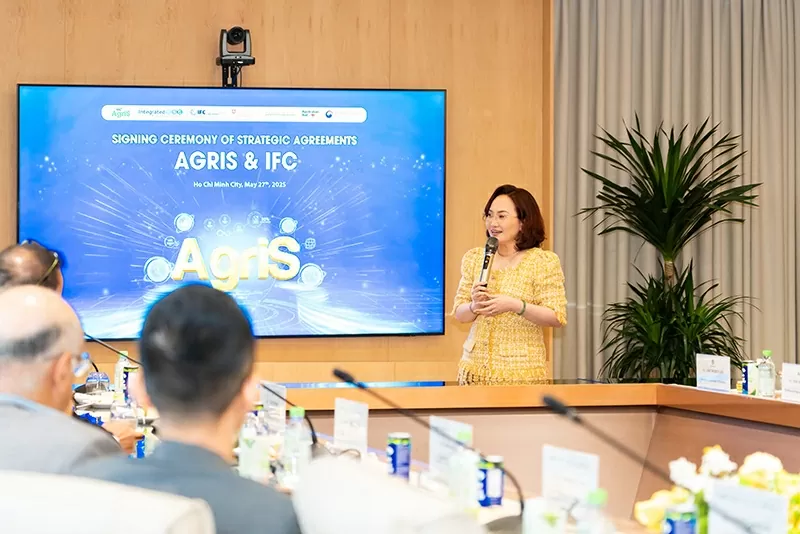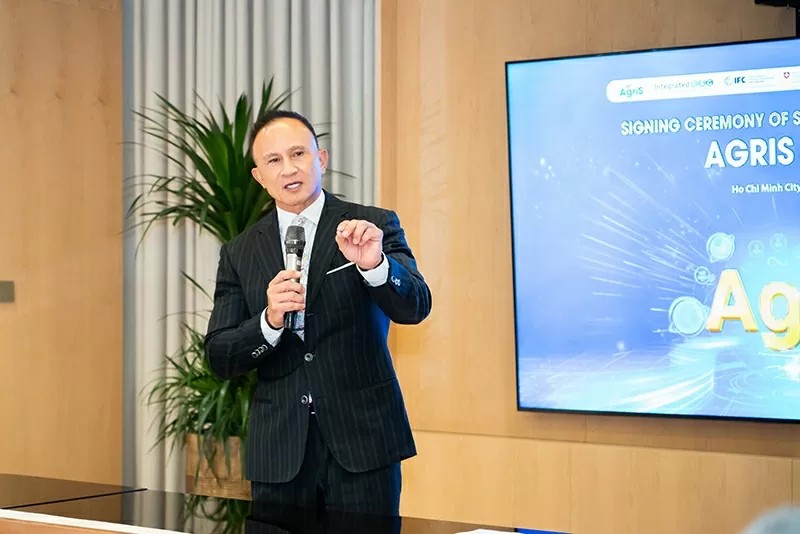
AgriS partners with IFC: Optimising environmental and social management system, accelerating net-zero 2035 goal
Latest
 |
| TTC AgriS and IFC signed a Memorandum of Understanding (MoU) to strengthen sustainable development governance in alignment with global standards in Ho Chi Minh City, on May 27, 2025. |
This event marks a significant milestone in AgriS’s journey to optimise its Environmental and Social Management System (ESMS) in line with international practices and realise its Net Zero emissions goal by 2035.
Strategic Partnership Focused on Action
Under the collaboration, and with support from the Swiss State Secretariat for Economic Affairs (SECO) and the governments of Australia and Korea, IFC will partner with AgriS to develop a comprehensive action plan to reduce emissions, implement carbon offsets, and enhance ESG monitoring across the agricultural value chain. Key initiatives include: Technical consulting on greenhouse gas emissions management by ISO14064-1, ISO14067, and ISO14068; Training for internal teams and partners on emissions inventory and Net Zero roadmap development; Promoting food safety practices, reducing food loss, and integrating gender equality and disability inclusion across the supply chain.
Following the advisory phase, AgriS and IFC will jointly roll out intensive training programs focusing on three core pillars: Food Safety, Food Loss Reduction, and Greenhouse Gas Emission Reduction. The two parties will also establish a carbon neutrality strategy and a third-party-verified Net Zero mechanism.
Raising Operational Standards to Align with Global Practices
IFC will support AgriS in comprehensively reviewing its current ESMS and developing an optimised roadmap in line with IFC’s Environmental and Social Performance Standards. Key efforts include: Integrating E&S standards into operations, internal policies, and risk management systems; Providing in-depth E&S compliance training for internal teams and strategic suppliers; Linking AgriS’s operational model with global financial ecosystems and international partners.
 |
| Ms. Dang Huynh Uc My, Chairlady of AgriS (4th from the left), and Mr. Darryl James Dong, Head of IFC Ho Chi Minh City Office (3rd from the left), at the signing ceremony. |
This partnership is expected to deliver tangible outcomes: training 200 internal trainers (ToT); 100% of ESG-related personnel trained to international standards; over 20% of key suppliers integrated into the upgraded ESMS; and at least a 20% reduction in post-harvest losses in key sourcing regions, enhancing value chain efficiency and accelerating progress toward Net Zero 2035.
Speaking on AgriS’s sustainability direction and strengthened cooperation with IFC, Ms. Dang Huynh Uc My – Chairlady of AgriS stated: “This collaboration with IFC reaffirms AgriS’s long-term commitment to sustainable development. We are building a comprehensive environmental and social governance system that meets stringent global standards, with ESG embedded throughout our operations – from production and supply to full value chain governance. AgriS is firmly committed to developing a transparent, sustainable, and responsible ecosystem.”
 |
| Ms. Dang Huynh Uc My affirms that the partnership with IFC lays the foundation for a globally aligned ESG governance system. |
"Our partnership with AgriS is set to become a benchmark for other Vietnamese agribusinesses looking to strengthen ESG governance, boost competitiveness, secure sustainable finance, and elevate their domestic supply chains to regional and global standards," said Darryl Dong, Head of Ho Chi Minh City Office from IFC.
 |
| Mr. Darryl Dong emphasised the importance of enhanced ESG governance in setting a new benchmark for Vietnamese agriculture. |
Supporting Vietnam’s National Circular Agriculture Strategy
As Vietnam accelerates the implementation of Resolution 57-NQ/TW and the transition to a circular economy, AgriS is emerging as a pioneer, demonstrating internal operational capabilities and driving positive impact across the entire agriculture sector.
Implementing a value-chain-wide ESMS is a strategic move that positions AgriS among the first Vietnamese agribusinesses to apply structured, effective ESG governance, contributing actively to the national agenda for circular agriculture.
| AgriS (HOSE: SBT): With more than 55 years of commitment to responsible value chains, AgriS is one of the region’s leading high-tech agribusinesses. With a mission to build a green, modern agriculture sector, AgriS continuously innovates and optimises its value chain through the AgriS Circular Commercial Value Chain model, and is firmly committed to achieving Net Zero emissions by 2035. IFC - a member of the World Bank Group - is the largest global development institution focused on the private sector in emerging markets. In fiscal year 2024, IFC committed a record $56 billion to private companies and financial institutions in developing countries, leveraging private sector solutions and mobilising private capital to create a world free of poverty on a livable planet. For more information, visit www.ifc.org. |

























